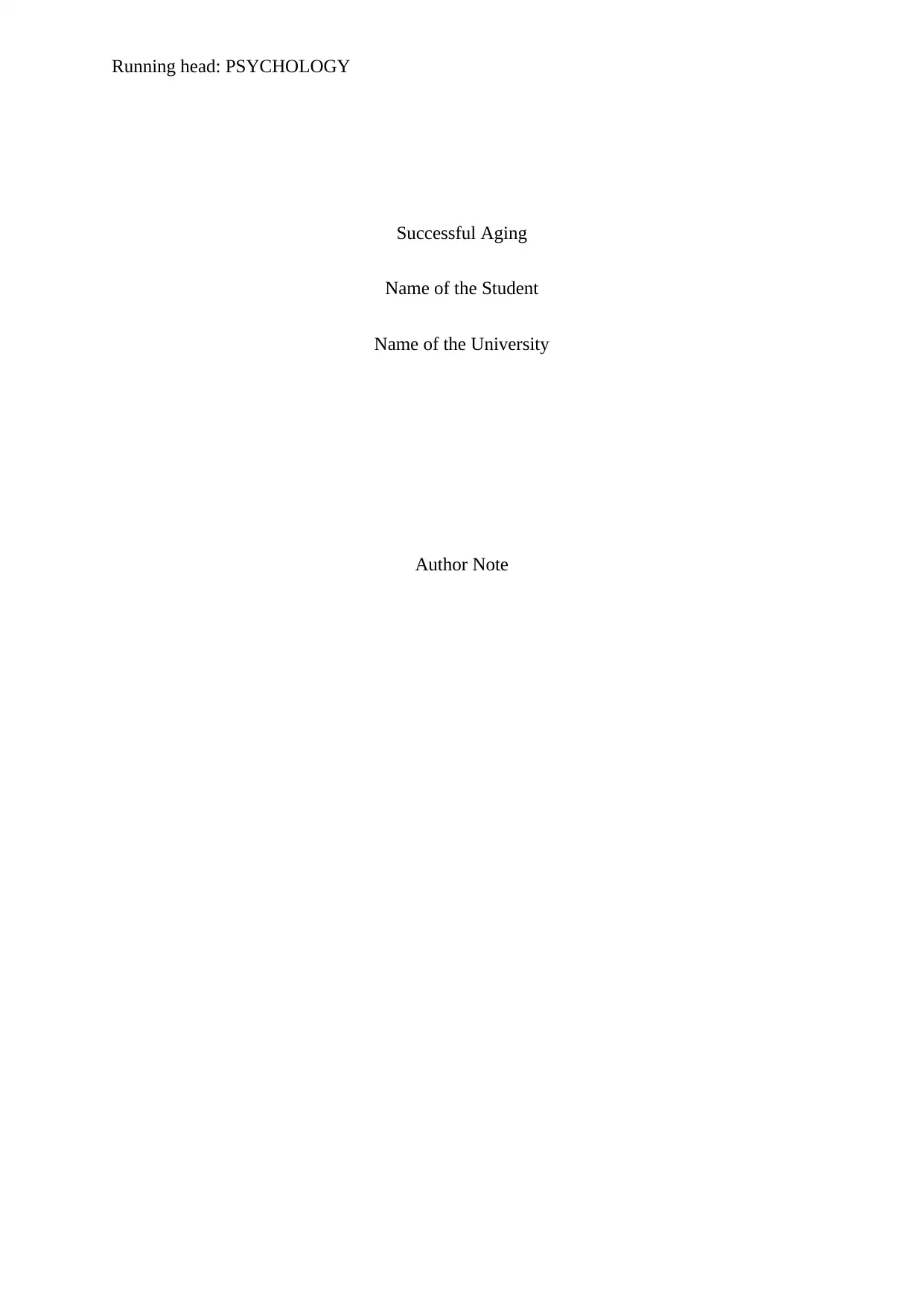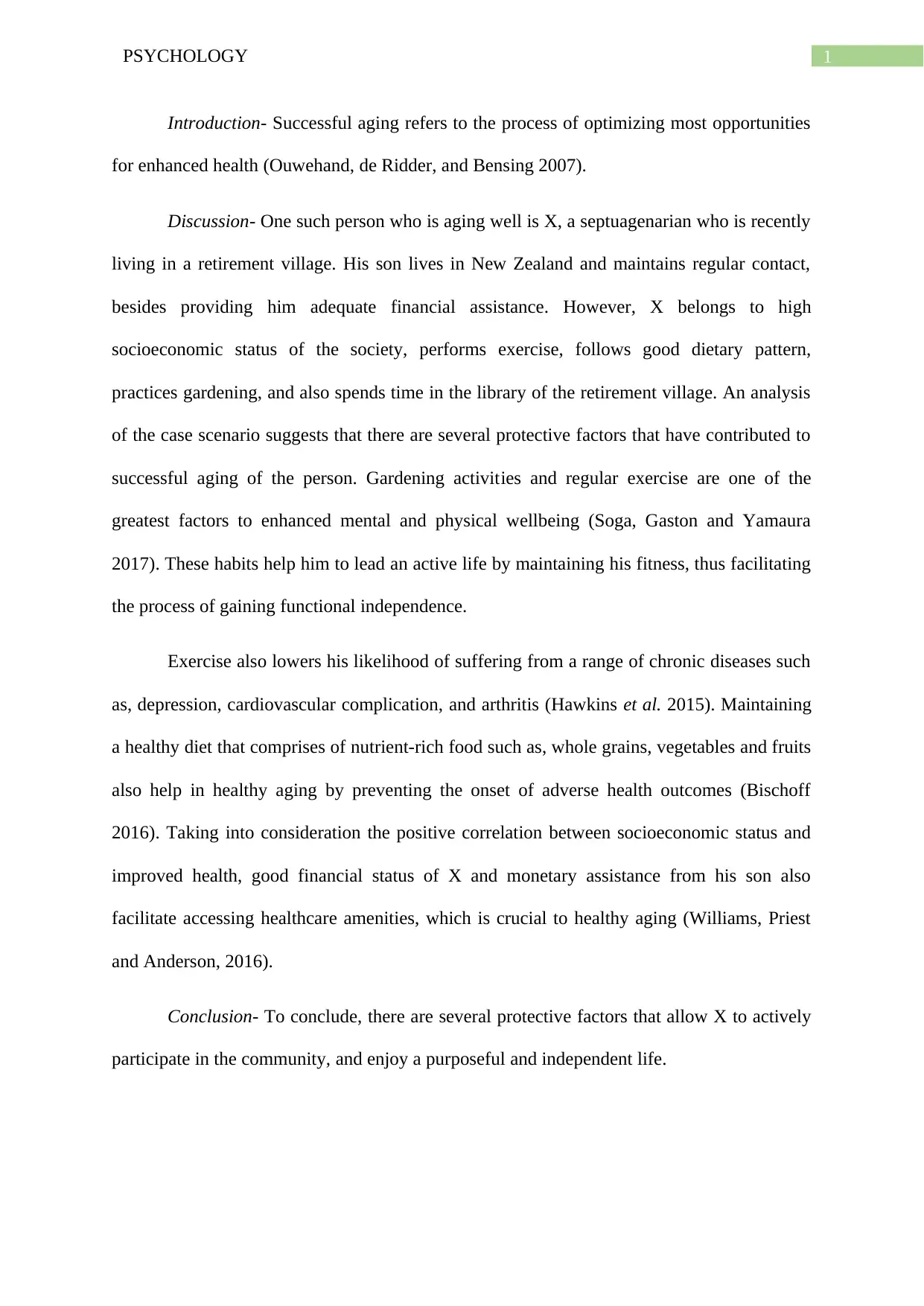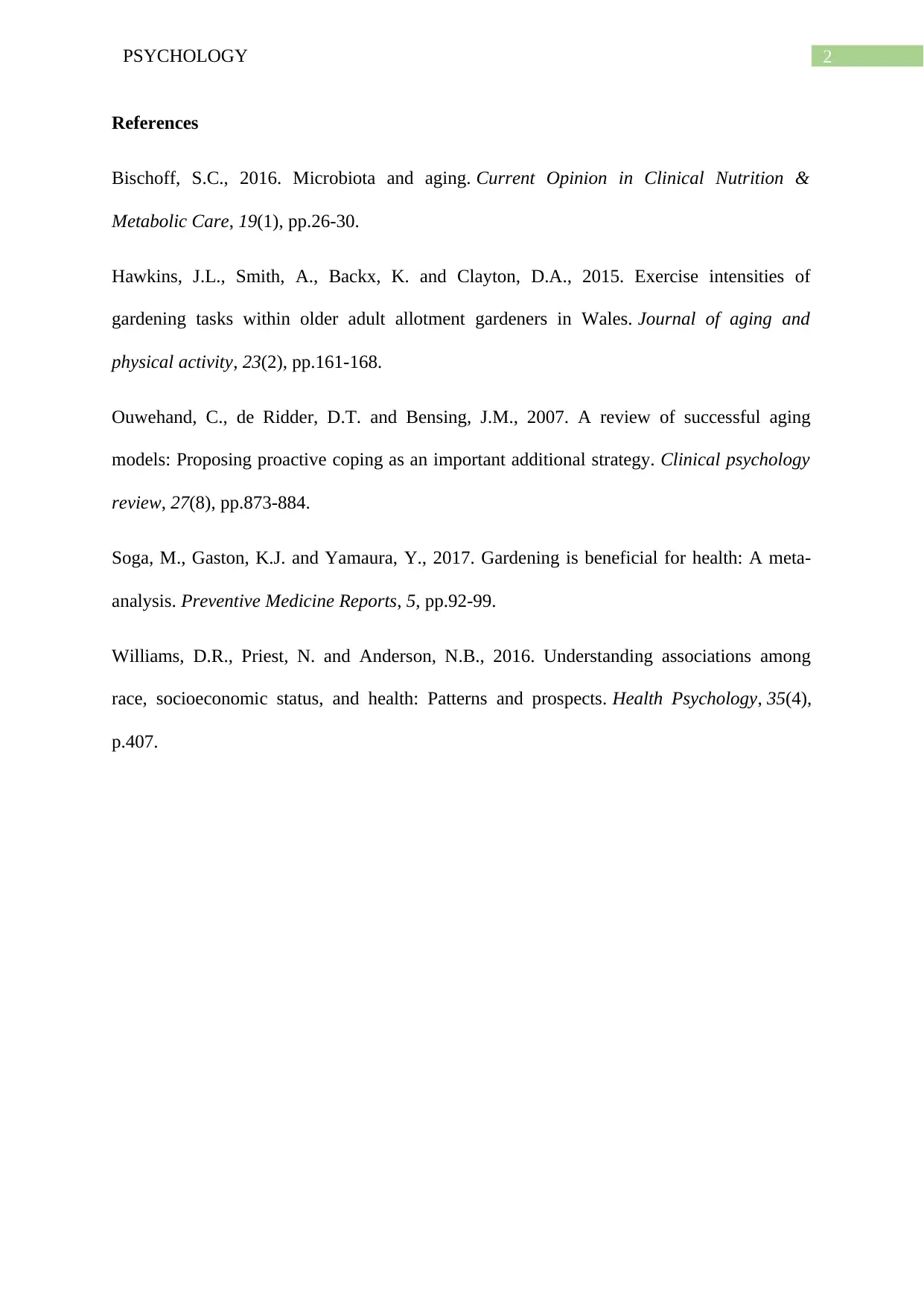Successful Aging: A Psychology Report on Case Study Analysis
VerifiedAdded on 2022/12/02
|3
|518
|104
Report
AI Summary
This report delves into the psychology of successful aging, examining a case study of an individual living in a retirement village. The analysis highlights the positive impacts of factors such as regular exercise, a healthy diet, and socioeconomic status on the individual's overall well-being. The report emphasizes the importance of these factors in maintaining physical and mental health, as well as in preventing chronic diseases and promoting an active, independent lifestyle. The study also references several research papers to support its findings, providing a comprehensive understanding of the key elements contributing to successful aging. The report concludes by summarizing the role of these protective factors in enabling the individual to actively participate in the community and enjoy a purposeful life.
1 out of 3





![[object Object]](/_next/static/media/star-bottom.7253800d.svg)